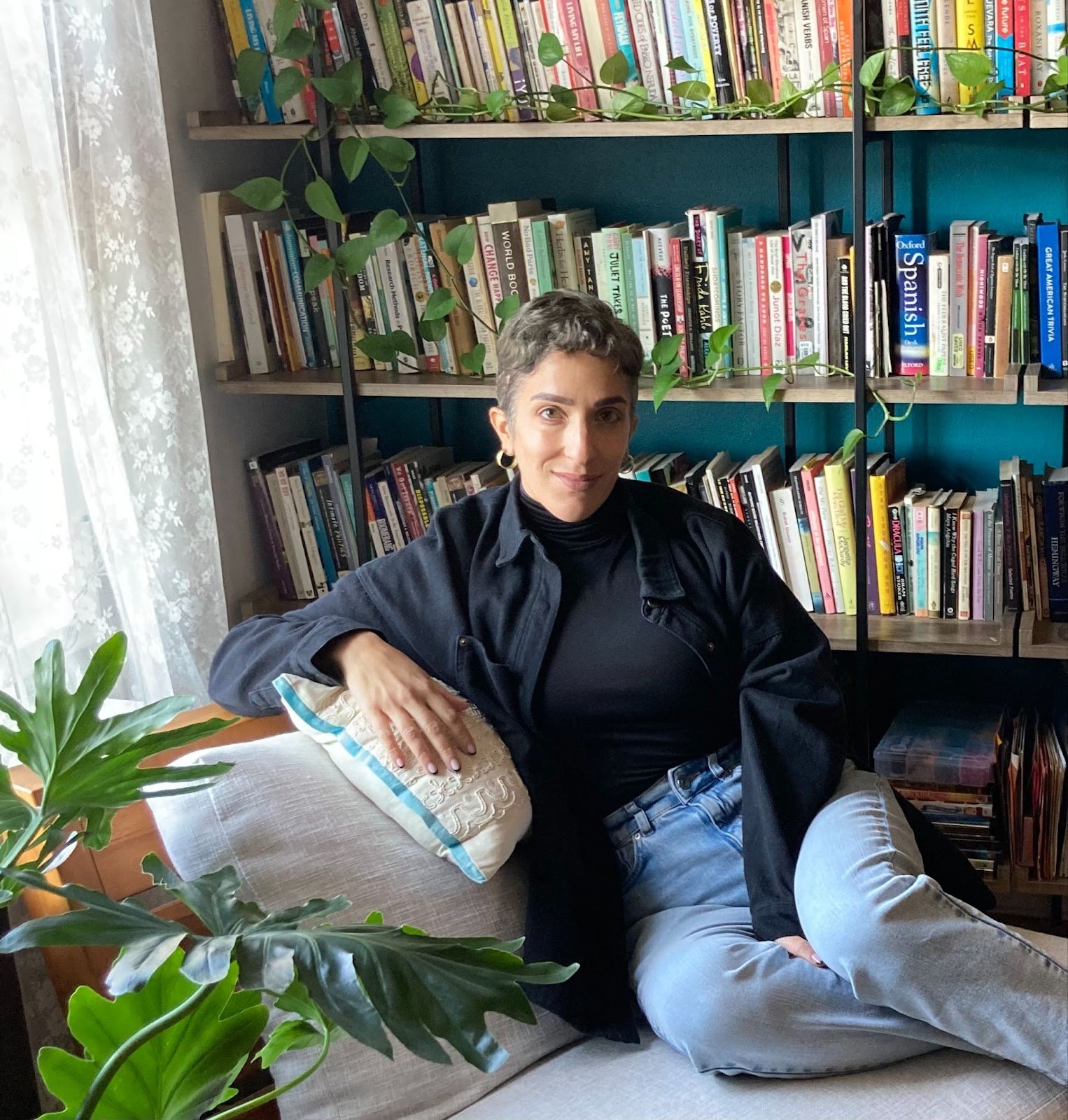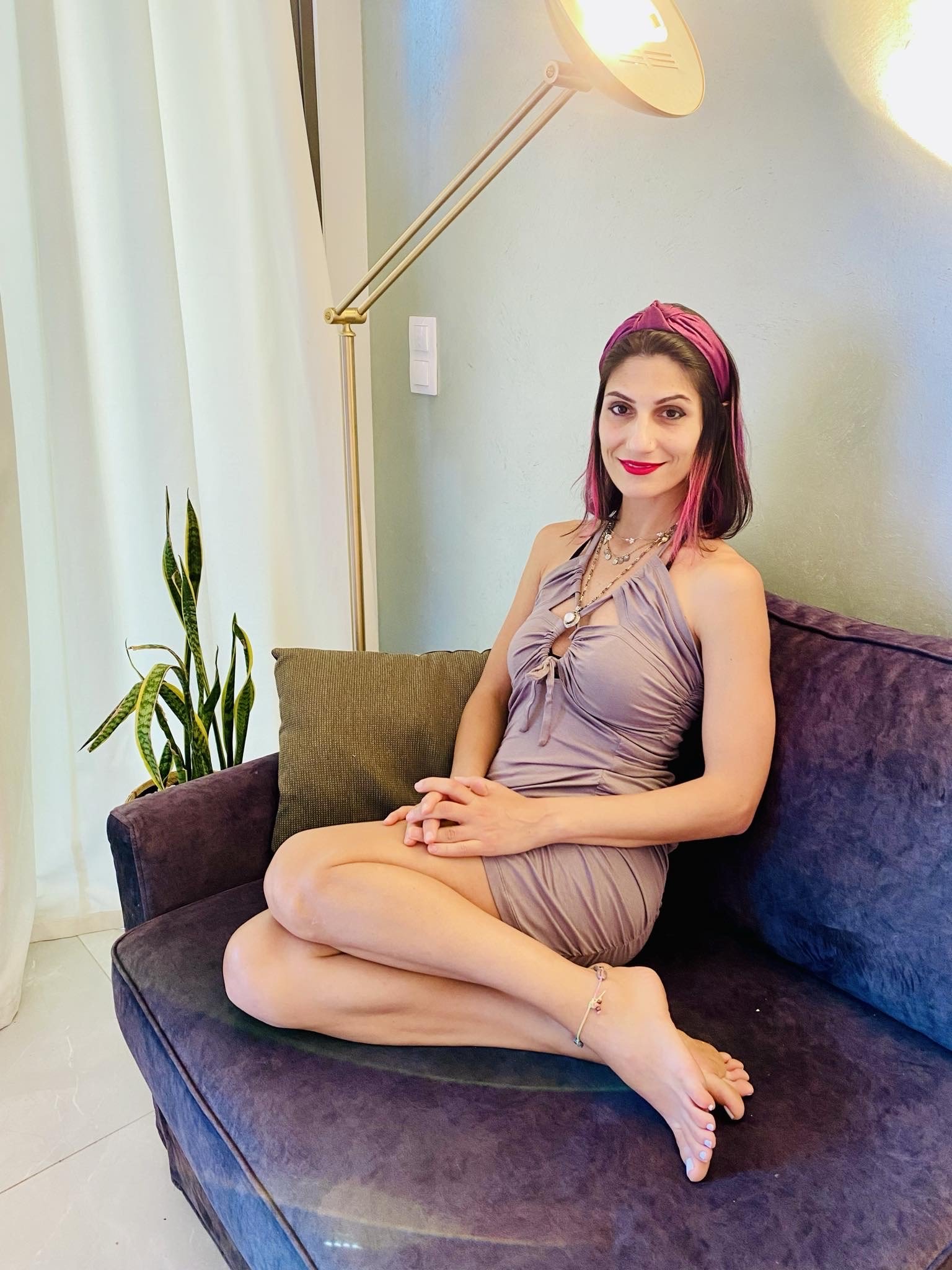A mirror of life, sex is not just for the younger generation, say two coaches
On my way to the Oleander Institute – actually to Myrsini’s studio in old Nicosia; the institute has no physical office – I spot a grey-haired couple in their golden years having a big old argument.
It’s unclear what happened, but he’s crossing the road to her while she stands on the pavement, holding a map and looking irate. Are they lost? Did he go to ask for directions, and take too long? Is this one of his bad habits, which she’s grown to loathe over many years? Was one partner just having a bad day, and taking it out on the other?
Relationships are complicated – a truism that hangs in the air for the next hour as I talk to Myrsini and Maria, the two women behind Oleander.
To be honest, I didn’t think the conversation would go that way. The institute’s website says they offer “inclusive sex coaching and education for adults”, and of course we’re conditioned to associate sex with all kinds of prurient tittle-tattle – but in fact a huge part of what they talk about with clients has to do with connection and boundaries, not even necessarily sex at all.

“There are people we work with who have no interest in sex, and there are people we work with who are very interested in sex,” explains Maria. “And we work with everyone, and we honour and respect everyone, regardless of what their relationship to sex might be.”
Maria is actually on a video call, one distinctive aspect of Oleander being that she and Myrsini live on different continents. Maria has “some family connections in Cyprus”, but is a native New Yorker and has lived in the Big Apple most of her life, while Myrsini is based in Nicosia and works – besides the sex coaching at Oleander – as a yoga teacher and massage practitioner. They met by chance in Cyprus, realised they were studying similar things (this was about a year and a half ago), and decided to collaborate.
It’s an unusual arrangement – but then Oleander is unusual in general, by Cyprus standards, our society being what the two women refer to as “sex-negative”. That said, Maria – who’s worked in sex education for almost 20 years – assures me that New York isn’t much better.
“In New York, I had very minimal sex education,” she says, recalling herself as a teenager. (She and Myrsini are both 36.) “You’d be surprised,” she laughs as I mention that I am indeed surprised, “there’s a lot of overlap [with Cyprus]… The education I received was no education. I learned from peers, and from movies. Unfortunately, those aren’t the best learning materials for a young person.”

It was much the same here, adds Myrsini. “The discussion [at school] was limited to use of a condom… And a lot about diseases. And external validation,” i.e. what society values, what people think, the various keys to being accepted by others. “Nothing about internal validation, consent, communicating…”
Consent is the big one, she believes – “a concept that we hear a lot,” and think we understand, but it actually goes much deeper, beyond sex to the ways in which society entraps us from an early age into following certain assumptions, rather than expressing who we are and what we really want.
“I think we live in a society where we don’t have the chance to learn what is consent, and the tools of communicating and negotiating,” she says. “We go to school and they tell us, ‘You don’t like what you’re doing now, but in 15 years you’ll appreciate all this’. You don’t like this food, but you have to eat it.
“So we lose our autonomy – and then, when we get to adulthood, it’s very hard to gain it back.”
Sex is their field, but it’s not just about sex. Sex is a symbol, a token, a mirror of life in general; we just tend to feel it more strongly – and, for instance, understand ‘consent’ most vividly in sexual terms – because sex is such a vital and pleasurable part of life. Then again, saying that is also an assumption – because some people have no interest in sex, and that’s okay too. “Asexuality is a valid orientation.”
Oleander’s clients are mostly from Cyprus, at least so far – and there’s something of an LGBTQIA+ focus (“we centre the queer community in our work,” as the website puts it) but everyone’s welcome, and it’s not just young people either.
The ‘Book Consultation’ button on the website (“Schedule a free 1:1 introductory session with us to learn more about our offerings”) gets clicked by clients of all ages – even older age groups who, you’d have thought, might be uncomfortable around the subject. “Especially older women,” muses Myrsini. “Because there’s also ageism, this discrimination against age – that sex is supposed to be for younger people, and older bodies are shamed. So we want to celebrate all bodies, all ages.”
They even get couples – though their work isn’t couples therapy, or any kind of therapy. “That’s a very different set of services,” clarifies Maria. “Those are mental-health services provided by mental-health professionals… We offer coaching. That’s a different service.” Their aim, simply put, is to help people “identify [their] goals” – and maybe even start looking at themselves in a new way.
Are they actually helping? Do they get feedback?
“Yes!” says Myrsini instantly. “We have very good feedback – in fact, we were discussing this before, how happy we are that we have an impact. Mostly about de-shamifying, and people feeling a release when they understand that they’re normal, and they’re accepted, and they’re beautiful as they are!”
Sure, I reply – not wishing to sour the mood – but external validation isn’t just an abstract concept, right? It does take two to form a relationship. A person may indeed feel ‘beautiful as they are’ – but they won’t get far unless they can find another person who thinks so too.
“I totally agree. And my opinion is that, yes, we are wired to want connection with other people.
“So what we do in our communities – in our sessions, in our workshops – is to offer this celebration, and this acceptance, so people will start to understand how it feels to be accepted as I am, without performing, without all this worry – what I’m going to wear, what I’m going to say, am I too much, am I too little… This [acceptance] creates in our brain, in our limbic system, a feeling of relaxation. And then people are more able to take decisions for themselves.”
Their role, you might say, is to craft a “safe space” – not just in the one-on-one consultations (the first, 15-minute one is free, so prospective clients can decide if they’re a good fit) but also, as mentioned, in communities and workshops, especially the bi-weekly ‘Sex Dialogues’.
That’s another main plank of the Oleander Institute, a series of ‘inclusive conversations’ – in collaboration with Yalla Collective Space & Café, plus chief accomplice Emily and various other facilitators – that’s been going for over a year now (though it’s taking a break at the moment). The list of topics they’ve discussed ranges across the whole spectrum of desire and diversity: kink, ageing, neurodivergence, disability – i.e. sexuality as it relates to physical impairment and disabled people, hosted by Roz, a wheelchair user – ‘Unlearning Shame’, porn apps and intimacy, ‘The Road to Dominance’, ethical non-monogamy…
Cynics may assume that the audience for these things is a tiny bubble of like-minded people; after all, ‘this is Cyprus’, right? But in fact the place is packed, says Myrsini, and the crowd keeps changing – “and they’re very respectful… I was really impressed that they’re so aware not to shame other experiences”. This, at least, is encouraging, that even in a small, conformist place (let’s not even start on the influence of the Church), so many people are at least interested in exploring further.
So what are the hang-ups in Cyprus? What sexual issues do clients come with? But here, alas, the Oleander duo are silent.
Sex may be normalised (and indeed normal), but it’s still very personal. Confidentiality makes it difficult to discuss their work in any detail – though “consent and communication” is a frequent topic, says Myrsini, and they’ve also had “people who want to understand better about open relationships”, and how to convey that need in a respectful way. The website offers a hint in the same direction, citing ‘Polyamory 101’ as a topic on which they offer workshops.
“I mean, people want to explore their sexuality,” offers Maria. “Maybe they want to explore what pleasure means to them. Maybe they want to be more present in their sexuality, or communicate boundaries… Beyond that, I don’t feel comfortable sharing.”
One thing remains ever-present, though, namely the ‘s-word’: not sex, but shame.
“There’s a whole culture of shame,” says Myrsini with a sigh. “Body-shaming, performance shaming, everything… Shame is underneath everything. And people acting in ways where they’re trying to avoid shame.”
It’s the same in New York, confirms Maria (again, a bit surprisingly). “Shame comes with the territory of sex. And part of our mission is to contribute to de-stigmatising these conversations, to reduce the shame that people feel around these topics.”
Sex, once again, may be a symbol here, standing for the broad systemic shame – the fear of being different, the pressure to conform – that’s been part of humanity’s lot since tribal days. I recall Myrsini explaining why the name ‘Oleander’ was chosen, because it’s a common Cypriot flower that’s also very resilient. That, in a way, describes sexuality too – a universal need that can’t be quenched, people setting out to find their joy even as the world tries to limit and pigeonhole them.
The topic is endless – and the need to connect, the need for a mate never ebbs. The elderly couple are long gone by the time I leave Oleander – but there, just outside the studio, are a younger, more thoughtful couple, clad in matching black coats against the cold and holding hands lightly, almost dreamily, as they walk and chat. Relationships, eh?






Click here to change your cookie preferences